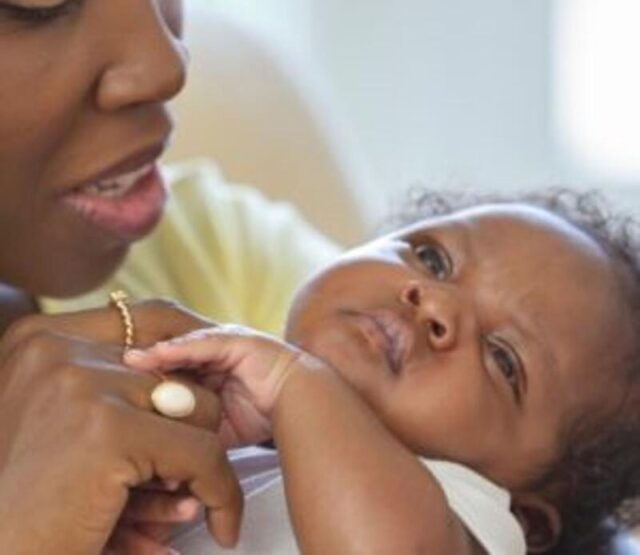As we prepare to celebrate Mother’s Day, it’s a time to reflect on the universal journey of motherhood and the individual paths that mothers walk to nurture the next generation.
AS Mother’s Day approaches, the focus turns to the unique journey of motherhood, a journey that knows no bounds and connects women across South Africa despite diverse traditions, cultures, and beliefs.
This journey starts with the wait for the baby, through to the birthing process, the nurturing moments after birth, celebrating the vital connection between a mother and her child through various customs.
In recent years, medical advancements in South Africa have significantly improved the survival rates of newborns and premature babies.
Today, babies born as early as 18 weeks before their due date have a fighting chance to survive, thanks to the progress in medical care.
Every day, around 3,505 babies are born in South Africa, and each birth is celebrated with the support of family, friends, and the wider community, incorporating religious traditions, cultural practices, and family expectations.
For mothers who find themselves without this support network, there are opportunities to seek advice and find community through support groups and digital platforms.
One such example is the monthly Vital Baby Instagram Live sessions with Sr Londe, Vital Baby’s trusted advisor, offering guidance to new and expectant mothers.
Becoming a parent is deeply personal, requiring one to trust their instincts, listen to their body, and foster the connection that allows every child to flourish.
As we prepare to celebrate Mother’s Day, it’s a time to reflect on the universal journey of motherhood and the individual paths that mothers walk to nurture the next generation.
Pregnancy preparations:
In many cultures, families wait until the fourth month of pregnancy to announce it, following traditions that welcome and celebrate the new life in a healthy and mature gestation period.
In the Zulu culture, there’s a unique ceremony called Ukubika Isisu. It’s a way to officially tell the expectant father’s family about the pregnancy.
This is important because it acknowledges the family’s duty towards the child’s upbringing. The ceremony happens before dawn, setting a foundation for responsibility and open communication between the families involved.
If the parents are not married, the future dad might need to offer compensation, like money or animals. This act underlines the importance of respect and community ties. After the baby arrives, a goat is sacrificed in a ritual called Imbeleko to celebrate the birth.
Pregnant women, especially in Zulu culture, are advised to avoid certain foods like eggs to prevent the belief that the child might be born bald.
Modern doctors also caution against consuming raw eggs and fish due to bacteria concerns. Expectant mothers must eat well, stay hydrated, and take prenatal vitamins for their health and the baby’s.
In Indian tradition, pregnant women from the seventh-month start wearing red and green glass bangles. This practice, known as Simantonnayana, is thought to comfort the unborn baby with the gentle sound of the bangles.
Science supports the idea that babies in the womb can hear sounds, including their mother’s heartbeat and voice, as early as 16 to 22 weeks. Parents are encouraged to talk to their baby before birth to help with bonding.
Prenatal care, childbirth, and postpartum health means early and regular check-ups to help monitor your health and the baby’s development and the support of childbirth classes to learn about labour, safe pain management and relaxation techniques.
The gestation period is a time of preparation for new mothers to ponder their birthing plans.
Birthing requirements
In the past, the experience of childbirth was mainly a women’s affair, with midwives leading the process and special rituals performed to protect and strengthen the newborn. Men often stayed away from the birthing process.
Nowadays, some women still choose to have their babies at home, valuing the wisdom passed down through generations and the comfort of familiar surroundings.
Midwives, doulas, and elders play a key role during home births, offering emotional support and connecting traditional practices with modern medical care.
Advances in healthcare mean that expecting mothers can benefit from ultrasounds, blood tests, and prenatal screenings.
These tools help spot any issues early on, making it easier to manage pregnancies that could be risky.
However, some mothers might need to have their babies through a surgery called a Caesarean section or might opt for pain relief methods like an epidural when giving birth in a hospital.
Among the Xhosa people, there’s a special ceremony for newborns called Sifudu, which is about purifying and cleansing. It’s a way to introduce the baby to their ancestors, linking them to their family’s past.
This ritual is important for the child’s health and their connection to their culture.
Breastfeeding does more than provide food for babies; in many cultures, it’s a sacred act that connects mothers and their children to their ancestors. It’s thought that breast milk transfers not only nutrients but also blessings and knowledge from past generations.
Today, fathers are more involved in the birthing process and in helping with breastfeeding. They can learn to support their partners by pumping breast milk and keeping track of feeding times.
Modern technology, like the Vital Baby nurture flexcone electric breast pump gift set, makes it easier for both moms and dads to manage to feed their babies, showing how family roles in child-rearing are evolving.
“Our mission is to empower families while respecting their unique traditions and recommend balancing cultural beliefs with evidence-based medicine. Respect practices that enhance well-being without compromising safety,” Sr Londe, Vital Baby’s trusted advisor, offered guidance to new and expectant mothers.








